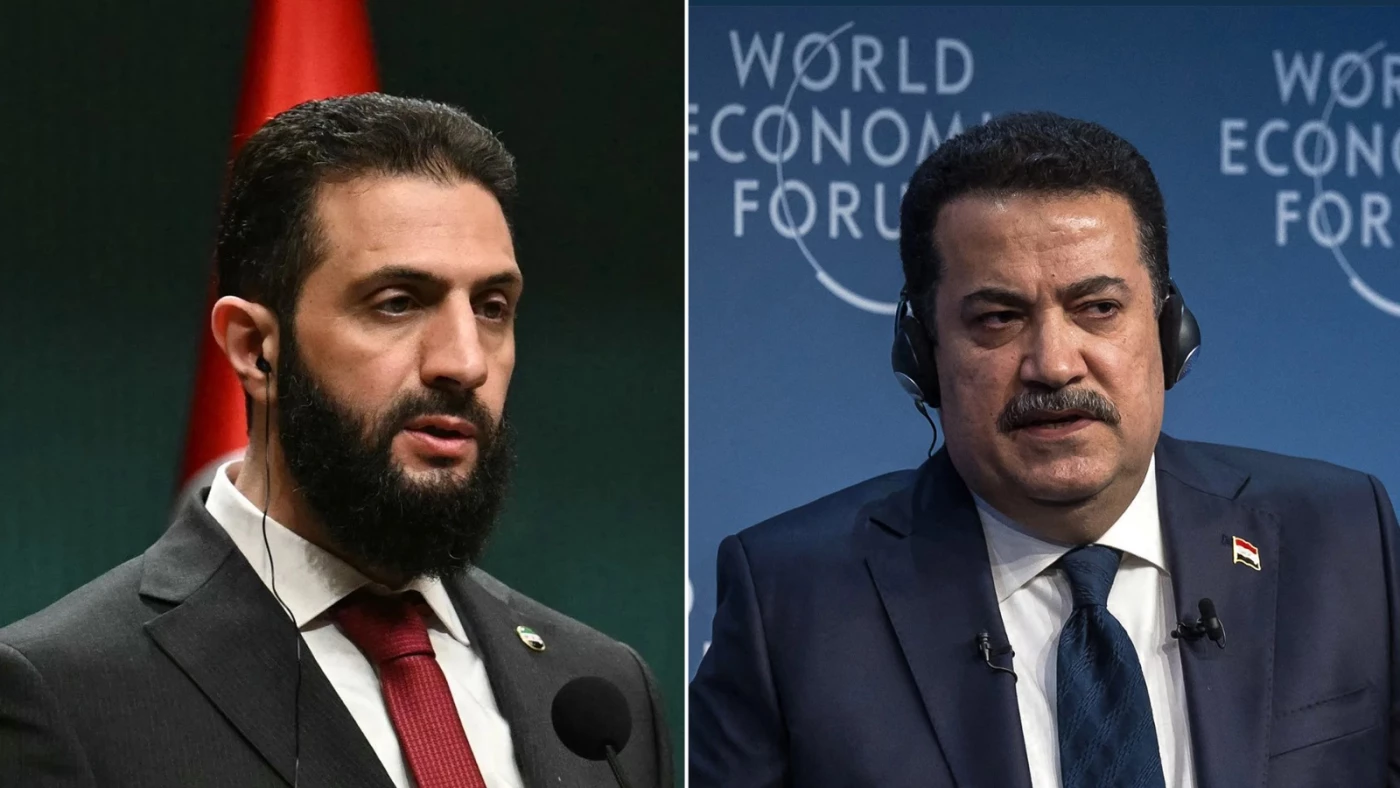ERBIL, Kurdistan Region of Iraq - The Reconstruction and Development Alliance, led by Iraqi Prime Minister Mohammed Shia al-Sudani, denied Wednesday that it received an intelligence archive from Syria that could be used to attack political opponents ahead of upcoming elections.
The denial came after Iraqi lawmaker Youssef al-Kalabi suggested on social media that Sudani’s government had received the archive from the era of Syrian President Bashar al-Assad through an envoy to Syria. Kalabi claimed the files would be used for “electoral defamation.”
Haider al-Tamimi, a senior member of the alliance, told The New Region that the reports are false.
“The information saying the Iraqi government received the Syrian intelligence archive to use it against political figures is completely untrue,” Tamimi said. “There is no such thing, and Damascus does not plan to hand over such an important and sensitive file to Baghdad.”
Tamimi added that both local and foreign groups are running media campaigns against Sudani and his alliance.
“This is part of political and electoral defamation. Sudani and his alliance are not following this kind of policy. They are not using power for electoral competition,” he said. “The alliance relies on people’s trust and real achievements to win support in the next stage.”
Earlier this week, Kalabi posted on social media, alleging that a Syrian intelligence archive dating from the reign of Assad was transferred to Sudani’s envoy to Syria during his meeting with Syrian President Ahmad al-Sharaa, whom Kalabi called by his nickname “al-Jolani.”
“The Syrian intelligence archive from Bashar’s time about Iraq is with al-Jolani,” Kalabi wrote. “An Iraqi guest visited him and was given the archive. The guest took the archive to his own place, and now it is being sorted to use it for electoral defamation. For those who care, with respect.”
He ended the post with the hashtag "#HonorlessRivalry."
On June 9, Syrian state news agency SANA reported that President Ahmad al-Sharaa met with Izzat al-Shabandar, Sudani’s special envoy, with the meeting reportedly taking place at the People’s Palace in Damascus.
In April, Sharaa met with Sudani in Doha in a meeting arranged with help from Qatar and attended by Emir Tamim bin Hamad Al Thani.
The Syrian presidency said the meeting focused on improving relations between Syria and Iraq. Both sides agreed to restart joint Arab cooperation and strengthen the historical ties between the two peoples.
President Sharaa has also met several times with Iraqi intelligence chief Hamid al-Shatri. These meetings, which were also on behalf of Sudani, included Syrian Foreign Minister Asaad al-Shaibani and Syrian intelligence chief Anas Khattab.
Earlier Wednesday, Iraq’s Parliament Foreign Relations Committee said the ongoing contact between the Iraqi and Syrian governments is necessary.
Committee member Amer al-Fayez told The New Region that it is important for Iraq to maintain communication with Syria.
“Sending the prime minister’s envoy to meet with Syrian President Ahmad al-Sharaa and the continued cooperation between Baghdad and Damascus is important,” he said. “Iraq has interests to protect, including border control and working together to fight terrorist groups that are still in Syria and pose a danger to Iraq’s national security.”
Fayez also said there are economic and security ties between the two countries, and Iraqis living in Syria must be considered.
“This is why we see no good reason to criticize communication between the two governments, as long as it helps Iraq’s national interests,” he said.



 Facebook
Facebook
 LinkedIn
LinkedIn
 Telegram
Telegram
 X
X


